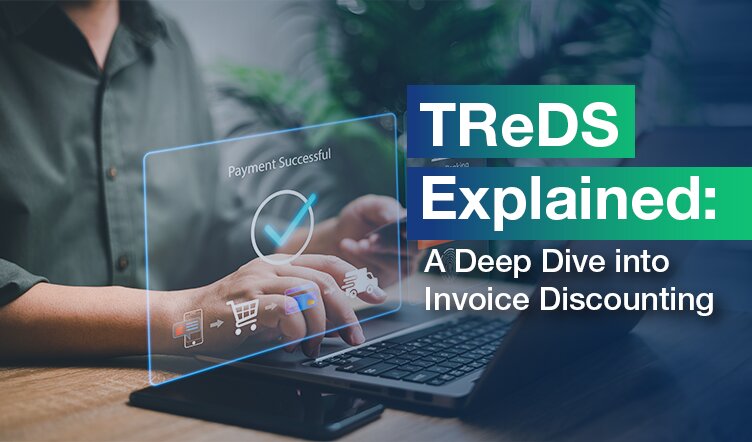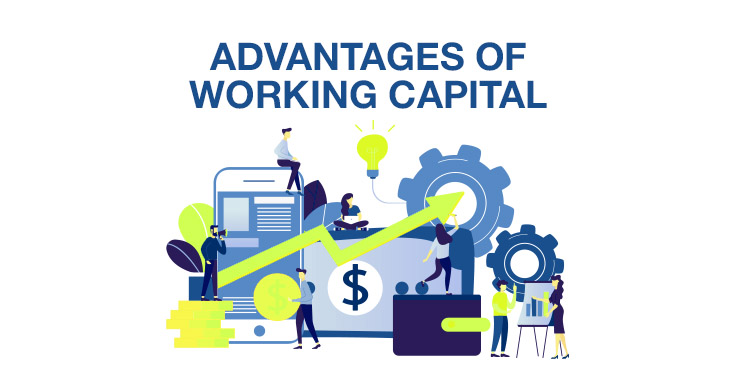In the world of SMEs (Small & Medium Enterprises), the one thing that businessmen dread the most is a cash crunch caused due to delayed payments from their clients. The cause of concern does not pertain to receiving these payments, instead, it’s related to when these payments are received. Delayed payment may prevent a business owner from taking a new order due to a lack of working capital. To overcome this issue, businessmen explore bill or invoice discounting options, which are the quickest way to monetize a payment expected in the future. The bill discounting allows payments to take place without disturbing the cash cycle as bill discounting allows SMEs to take quick access to funds against bills or invoices raised, thereby allowing businesses to run smoothly.
What Is Bills Discounting?
Bill discounting refers to a method of working capital finance for the seller of goods. It refers to a fee charged by the bank from the seller of the goods to release funds before the end of the credit period. Bill discounting is also commonly known as invoice discounting or the purchase of bills. It is a major trading activity wherein the seller of the goods gets funds before the term of the letter of credit expires for a small amount charged by the bank as fees.
One of the advantages of Bills discounting is that it allows you to address financial emergencies. You can also utilize such funds to mitigate a host of expenses.
Bills Discounting Example
Suppose, a businessman sold goods to Mr. X worth Rs 10,000, but Mr. X does not have the money to pay today but he is certain to pay on a later date, after two months, so the bill is raised stating Mr. X to pay Rs 10,000 after two months. But an urgent need for funds is required by a businessman and he can’t wait for two months, thereby he discounts this bill with his bank/Bill discounting company two months before its due date @15% P.A rate of discount. Now the bank pays the drawer an amount of Rs 9750 after deducting an applicable commission of Rs 250.
Businessman (drawer) sold goods and also got paid without having to lose either his customer or the business. Mr. X got the goods not having paid today, and the bank made a good commission.
Bills Discounting Companies in India
Bills Discounting provides, an alternative to a traditional working capital requirement. Instant access to funds can be provided to MSMEs by using their unpaid bills or goods received notes (GRN) as collateral. At present, many banks & bill discounting companies are providing these services to the business owners. Hence, a Businessman has the option to choose from a wide range of bill discounting service providers.
M1xchange is an RBI regulated Trade Receivable Electronic discounting Platform that serves as a transparent and quick medium for the MSMEs to avail funds against their invoices at cheaper rates, through a transparent bidding mechanism by multiple financiers. Transactions on the M1xchange TReDS platform happen digitally and starts when the MSME Supplier raises the invoice and the Buyer validates the same. This permits the financiers (Banks/ NBFCs) registered on the platform to bid against the verified and approved invoice. Once the supplier chooses and accepts the best bid, the payment is processed in 1 to 2 days.
Bills Discounting Process
1) Small or medium enterprises raise Invoices against the Corporates (Enterprise/Blue-chip Company/PSUs) for the services provided/goods supplied. The credit period of the invoices (tenor) normally range from 30-120 days.
2) To avoid the delay in collections and reduce the risk of collection, they can bring their invoices for Invoice Discounting to TReDS M1xchange and manage collections efficiently.
3) In 1-2 days, these invoices are converted to cash and transferred to MSMEs at a very cost-effective discounting rate.
4) Small or medium enterprises complete multiple business cycles in this tenure and upon release of payment from corporate.
Discounting bills provides businesses funds upfront rather than waiting for 30-120 days. The completion of multiple business cycles further helps in improved cash flows and increases revenue rather than limiting operations due to a lack of funds.
How can Bills Discounting Help Cash Flow?
Bills Discounting offers several advantages to businesses, especially those with a small or medium scale of operations. Let’s take a look at a few of them.
- Access to Instant Funds
Traditional business loans involve lengthy paperwork, collaterals & several verifications, which can delay the fund’s disbursal. On the other hand Bills discounting involves minimum formalities. Thus you can access funds much quickly without collateral, which can help you manage business cash flow better.
- Better relationship between suppliers and buyers
The buyer benefits by earning a cash discount from the vendors as they get substantial savings in interest cost basis buyer’s credit rating. Suppliers enjoy better working capital management all the while increasing the options of expanding the business faster. Continual application of this process leads to a better receivables cycle too which results in better relationship building between buyers and suppliers.
Last modified: November 27, 2024















